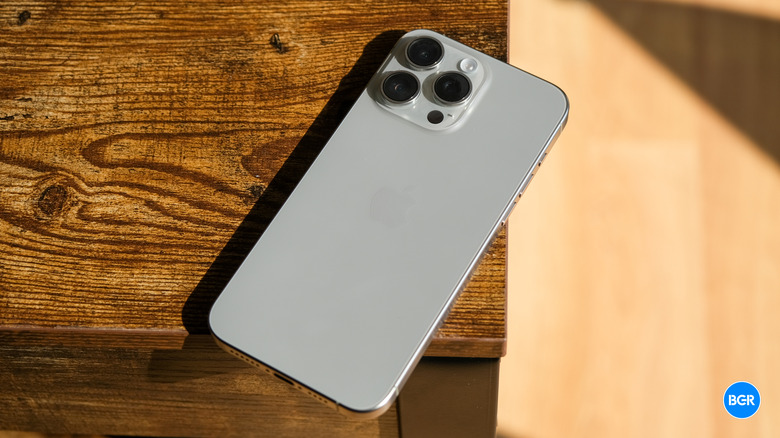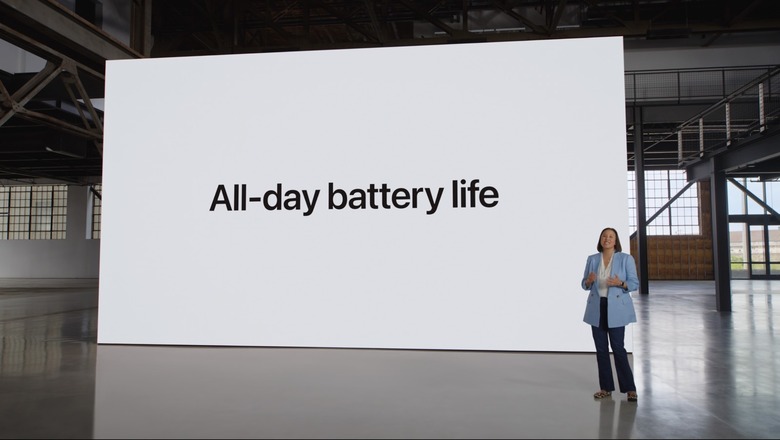I Hope The iPhone Gets The Custom Apple Battery Tech This Rumor Teases
Like most iPhone users, I might have a battery life problem. It's not that I run out of battery when I least expect it. I worry about battery life without having a good reason to. It's probably related to past battery trauma, instances where I ran out of juice and don't want to repeat.
I want better battery life from the iPhone, the Apple Watch, and the MacBook. That's probably understandable. The smartphone is especially important in our lives, the main computer for most people. Therefore, battery life is a key factor when buying a new model.
That's why I hope the rumor teasing custom Apple batteries for iPhone is so exciting. It's something I've been dying to see Apple deliver, as we've reached a point where standard batteries can only do so much. Especially on mobile devices.
Apple's proprietary tech
A report from ETNews claims that Apple will deliver its first custom battery in 2025, after several years of research and development.
The strategy aligns with Apple's way of doing things. The iPhone maker started making its own mobile chips for the iPhone a few years ago, and the A-series processors have been setting the tone in the industry ever since. Apple is also working on its own display tech, including miniLED and microLED displays. And it's developing its own 5G chip.
Developing proprietary battery tech seems appropriate, considering the current landscape.
Mobile devices like the iPhone and Apple Watch can't fit larger batteries. While components like the A-series chips get more energy efficient, they will require more energy for intensive tasks. Also, current battery tech impacts battery longevity, potentially hindering Apple's ability to increase battery charging speeds.
The report says that Apple is actively developing the materials inside the battery. That includes the cathode materials, aiming to create a "completely new battery" that will deliver higher performance.
The cathode material will impact the battery performance, energy density, output, and stability. Apple is looking to make a new cathode material that's completely different from what's available right now. Apple reportedly uses nickel, cobalt, manganese, and aluminum to create the new composition.
ETNews also says that Apple is looking at carbon nanotubes as conductive materials. These can improve performance compared to the current solution.
Finally, Apple is looking to replace graphite in the anode with silicon. This can increase battery capacity and reduce charging times. Apple reportedly has a solution for the silicon problem. The material tends to expand in volume during the charging and discharging process.
Apple has been working on its battery tech since 2018. The iPhone maker recruited an executive from Samsung SDI to oversee the battery department. At the time, the focus seemed to be on large batteries that would fit a future Apple Car. The new technology the ETNews report teases concerns mobile devices.
Other exciting battery developments
I'll remind you of two different battery technologies that are either in use inside iPhone competitors or are rumored to come to future iPhone models.
First, we have the stacked battery rumor from earlier this year. If it pans out, phones like the Galaxy S24 series and the iPhone 16 will feature stacked batteries similar to the battery technology found in electric vehicles.
Stacked batteries are compact batteries that can increase the energy density of batteries and, therefore, the battery life. They can also charge more efficiently and improve battery health by reducing the pace of degradation. We'll have to wait until next year to see if Samsung and/or Apple will use stacked battery tech in their smartphones.
Second, we have the Chinese smartphone vendor Honor, which is already using silicon-carbon batteries in some of its models. Most recently, we talked about the crazy-thin batteries inside the world's thinnest foldable, the Honor Magic V2. They pack silicon-carbon tech that sounds similar to the anode technology Apple is developing.
I said at MWC that I hoped more smartphone vendors would make use of silicon-carbon battery tech. Hopefully, the iPhones of the future will. As you can see in the clip above, silicon-carbon batteries have been conceived for EVs initially. But there's no denying the tech could serve mobile devices very well.
I'll also speculate that combining stacked batteries with silicon-carbon tech would result in even better iPhone tech. Though we'll probably have to wait a few years to see that happen.

